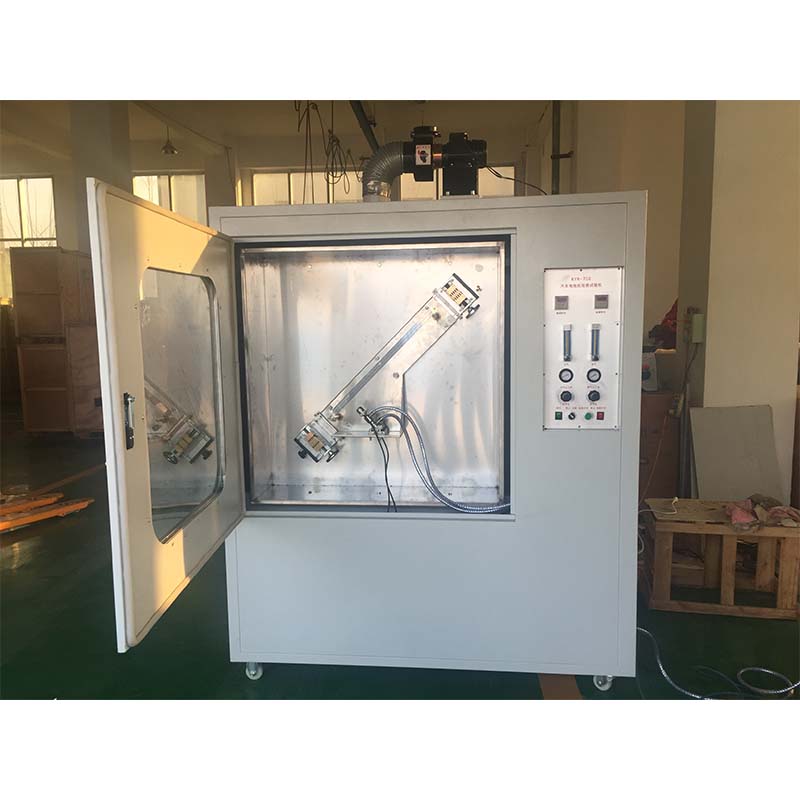tensile tester shear strength supplier
Understanding Shear Strength Testing with Tensile Testers
When it comes to evaluating the mechanical properties of materials, particularly metals and polymers, shear strength is a critical factor. It indicates how much force a material can withstand before it fails when subjected to shear stress. The importance of this property is evident across various industries, from construction and manufacturing to aerospace and automotive. To measure this property accurately, specialized equipment such as tensile testers is employed. In this article, we will explore shear strength testing, the role of tensile testers, and what to consider when selecting a supplier.
What is Shear Strength?
Shear strength refers to the maximum stress that a material can endure when subjected to shear loading. Shear loads act parallel to the surface of the material, in contrast to tensile loads, which pull the material apart. The ability of a material to resist shear forces is critical in applications where components are subjected to sliding forces. For example, in bolted joints, the materials need to have an adequate shear strength to prevent failure.
Testing for shear strength provides insights into the material’s durability and performance in real-world applications. The results obtained can help engineers design safer and more reliable products, preventing catastrophic failures that can occur in poorly designed components.
The Role of Tensile Testers
Tensile testers, commonly known as universal testing machines (UTMs), are designed to measure the mechanical properties of materials under tension and compression. While the primary focus of tensile testers is often on tensile strength, they can also be utilized for shear strength assessments through specific testing methods such as the shear test.
A tensile tester typically comprises a load frame, a load cell to measure the force, and fixtures to secure the test specimen. When testing for shear strength, the specimen is usually shaped into a geometrical form that allows for shear loading, such as a shear test specimen or a double shear specimen.
During the testing process, the tensile tester applies a controlled load until the material fails
. The data collected during this process allows engineers to calculate the shear strength of the material, which is crucial for ensuring it meets the specifications required for its intended application.Choosing a Supplier for Tensile Testers
tensile tester shear strength supplier

When selecting a supplier for tensile testers to evaluate shear strength, several factors should be considered
1. Quality and Accuracy The accuracy of the tensile tester is paramount. It must provide consistent and precise measurements to ensure reliable data. Look for suppliers that offer calibration services and certifications.
2. Range of Testing Ensure that the tensile tester can accommodate various materials and testing methods. A versatile machine can be beneficial for companies dealing with different types of materials.
3. Support and Services Consider suppliers that offer excellent customer support and after-sales services. This might include operator training, maintenance, and technical support for troubleshooting.
4. Range of Accessories Look for suppliers that provide a wide range of accessories and fixtures tailored for different tests, including shear testing. This can enhance the testing capabilities of the machine.
5. Reputation and Reviews Research the supplier's reputation in the industry. Customer reviews and testimonials can provide insights into the quality and reliability of their products.
6. Cost-Effectiveness While price shouldn't be the primary factor, it's essential to find a balance between cost and quality. Investing in a reliable tensile tester can lead to better long-term results.
Conclusion
Shear strength is a vital mechanical property that must be evaluated to ensure the reliability and safety of materials used in various applications. Tensile testers play an essential role in this assessment, providing the necessary data through precise measurements. When considering a supplier for tensile testers, thorough research into their products, services, and reputation can lead to the selection of the right equipment for your testing needs. By doing so, businesses can enhance their material testing protocols, contribute to safer designs, and ultimately improve their operational success.
-
Why the Conductor Resistance Constant Temperature Measurement Machine Redefines Precision
NewsJun.20,2025
-
Reliable Testing Starts Here: Why the High Insulation Resistance Measuring Instrument Is a Must-Have
NewsJun.20,2025
-
Flexible Cable Flexing Test Equipment: The Precision Standard for Cable Durability and Performance Testing
NewsJun.20,2025
-
Digital Measurement Projector: Precision Visualization for Modern Manufacturing
NewsJun.20,2025
-
Computer Control Electronic Tensile Tester: Precision and Power for the Modern Metal Industry
NewsJun.20,2025
-
Cable Spark Tester: Your Ultimate Insulation Assurance for Wire and Cable Testing
NewsJun.20,2025
 Copyright © 2025 Hebei Fangyuan Instrument & Equipment Co.,Ltd. All Rights Reserved. Sitemap | Privacy Policy
Copyright © 2025 Hebei Fangyuan Instrument & Equipment Co.,Ltd. All Rights Reserved. Sitemap | Privacy Policy
